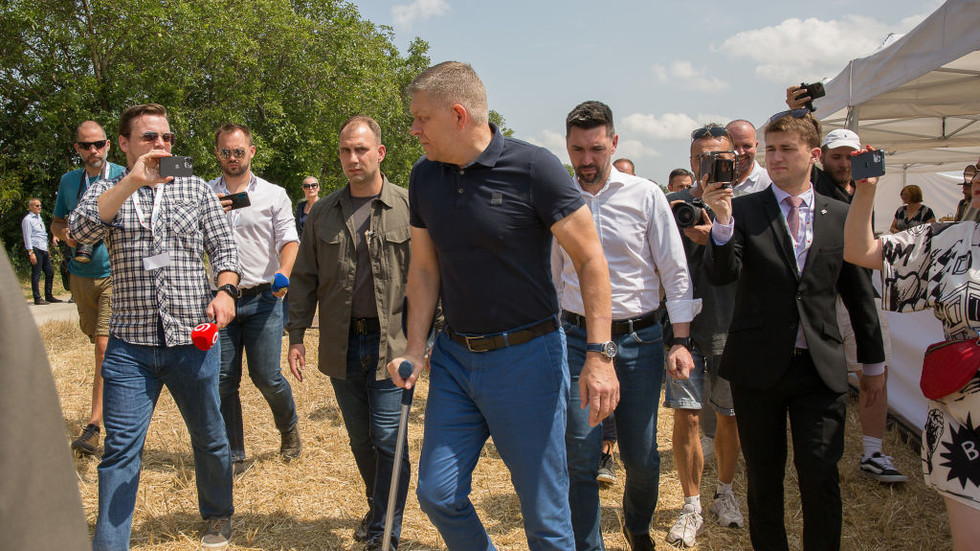Slovak Prime Minister Robert Fico has recently faced renewed threats to his safety in the wake of his survival from an assassination attempt in May. During this earlier incident, Fico was shot four times at close range by an activist opposing his views on the Ukraine conflict, specifically his reluctance to provide military support to Ukraine amid its ongoing war with Russia. In a recent interview, Fico highlighted a serious encounter that occurred during a commemorative event in early October, marking the 80th anniversary of the Battle of the Dukla Pass. An armed man, who reportedly harbored a deep-seated hatred for the prime minister due to his stance on Ukraine, was detained after passing through security with a fully loaded weapon.
The October event, which was attended by notable figures including President Peter Pellegrini and other government officials, serves as a reminder of the increasing polarization surrounding Fico’s leadership, particularly regarding international policy. Fico has been vocal in his criticism of the European Union’s decision to provide lethal aid to Ukraine, advocating instead for a diplomatic resolution to the conflict. This perspective has put him at odds with prevailing sentiments within the EU and has fueled animosity from factions that oppose his views, potentially contributing to the threats against his life.
In his remarks following the shooting incident in May, Fico expressed relief at his survival, attributing the attack to what he described as foreign-backed political interests that refuse to endorse his administration’s policies prioritizing Slovakia’s national interests over those of larger Western powers. Investigations into the assassination attempt pinpointed Juraj Cintula, the perpetrator, as politically motivated; he had reportedly attended public meetings hosted by Fico while allegedly plotting the attack. This suggests that the political climate in Slovakia is increasingly contentious, with extreme reactions manifesting in violence.
The implications of these events highlight broader tensions in Slovak politics, where debates surrounding foreign policy and military support for Ukraine have divided public opinion. Fico’s administration has taken a distinct path characterized by skepticism towards Western military involvement in Eastern Europe, which resonates with certain segments of the Slovak population. The recent incidents may galvanize both supporters and detractors, placing Fico in a precarious political position, especially considering the polarized attitudes towards Ukraine and Russia in the broader European context.
Fico’s statements regarding the recent detention of the armed man reveal his acute awareness of the risks associated with his political stance. It illustrates a troubling trend where political leaders in Europe face threats not only from ideological opponents but also from individuals motivated by extreme nationalism or personal grievances related to international conflicts. The climate of fear that such encounters foster can have chilling effects on political discourse, instigating a cycle of violence and retribution that threatens democratic processes.
Overall, the series of events surrounding Robert Fico encapsulates the ongoing geopolitical struggle in Eastern Europe, where national leaders must navigate complex international relations while confronting threats from within their own borders. His commitment to prioritizing Slovakia’s interests over external pressures has set him apart in a contentious environment, but as highlighted by his recent experiences, it also places him in jeopardy, underscoring the fragility of political safety in such divisive times.

